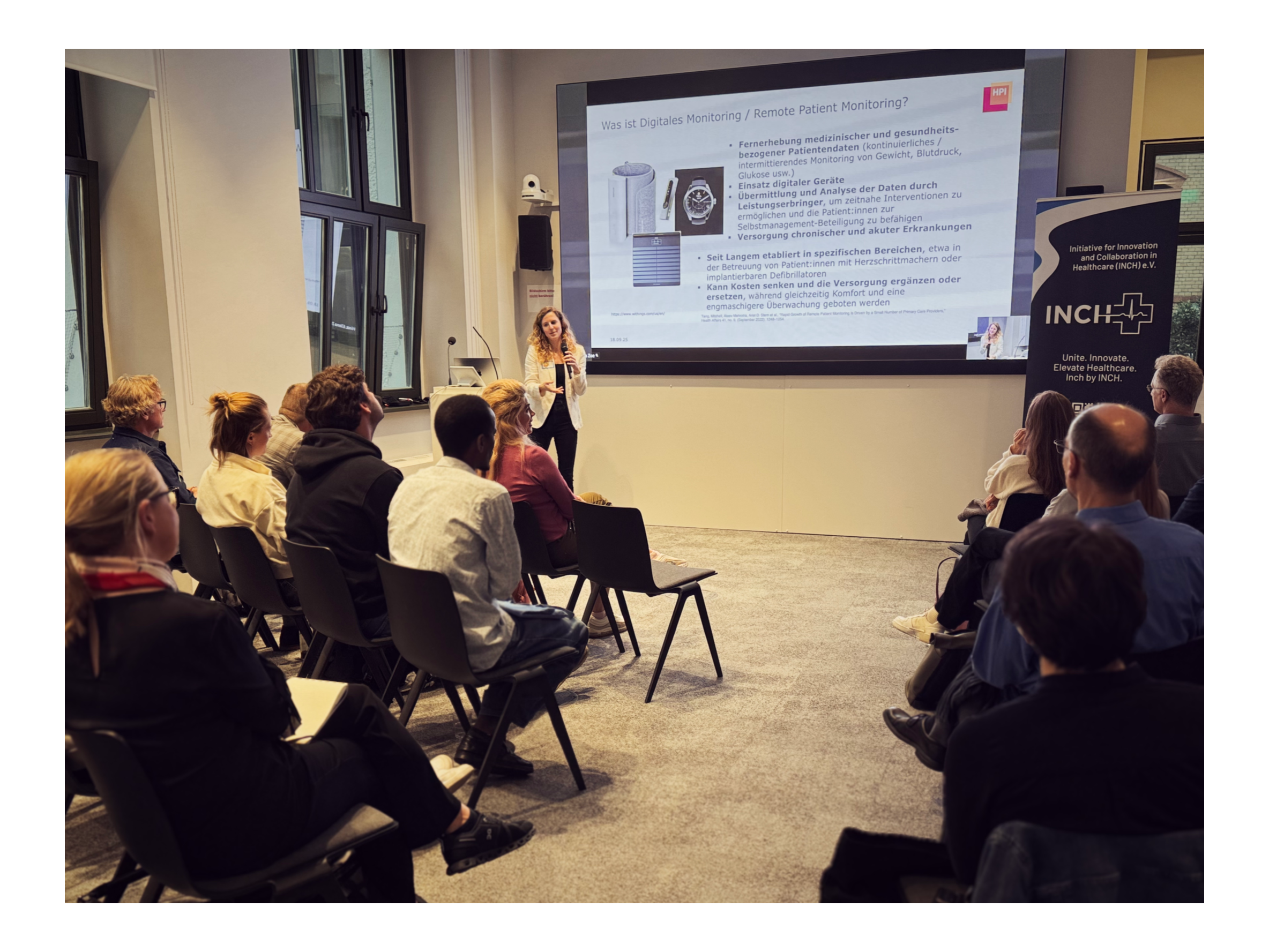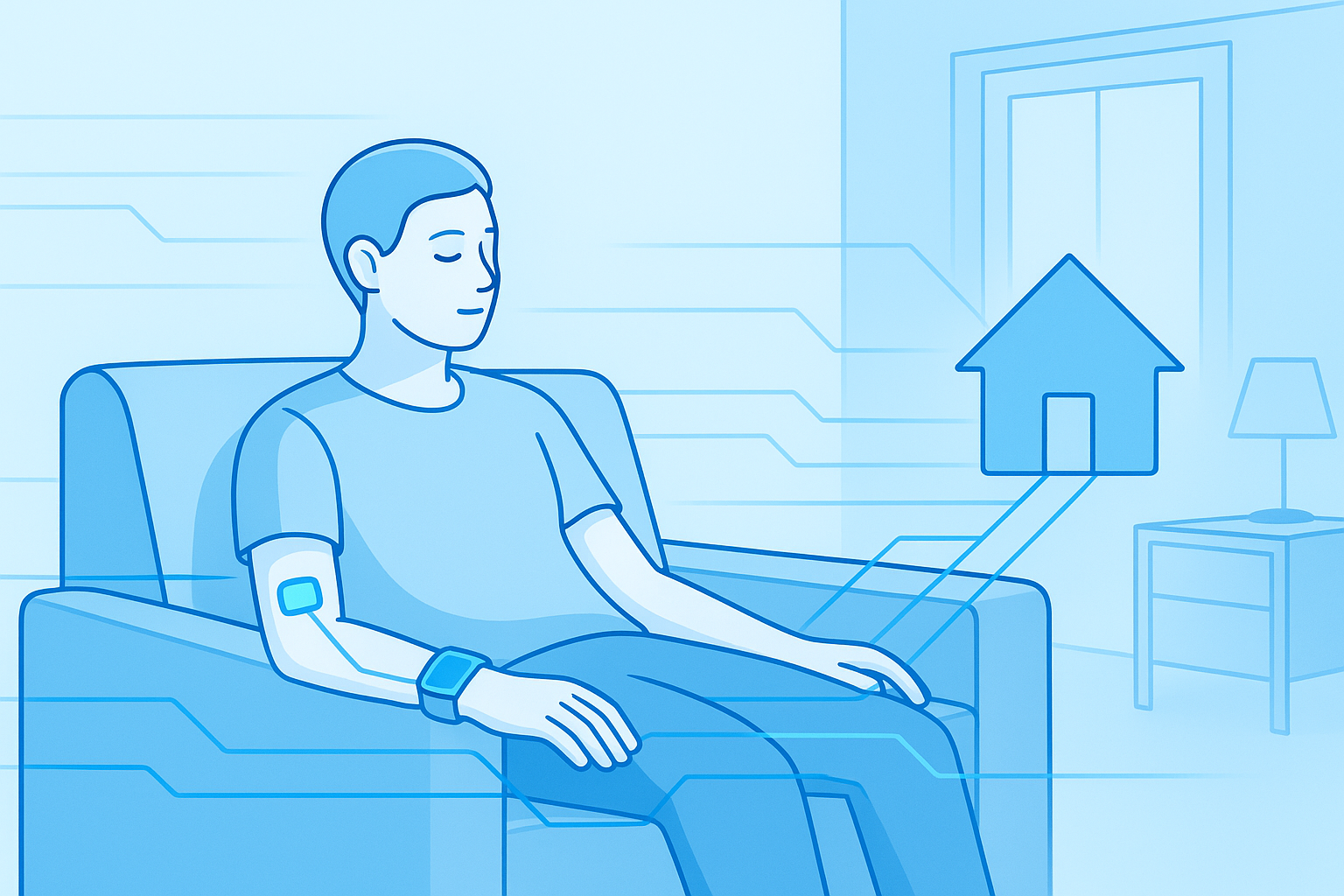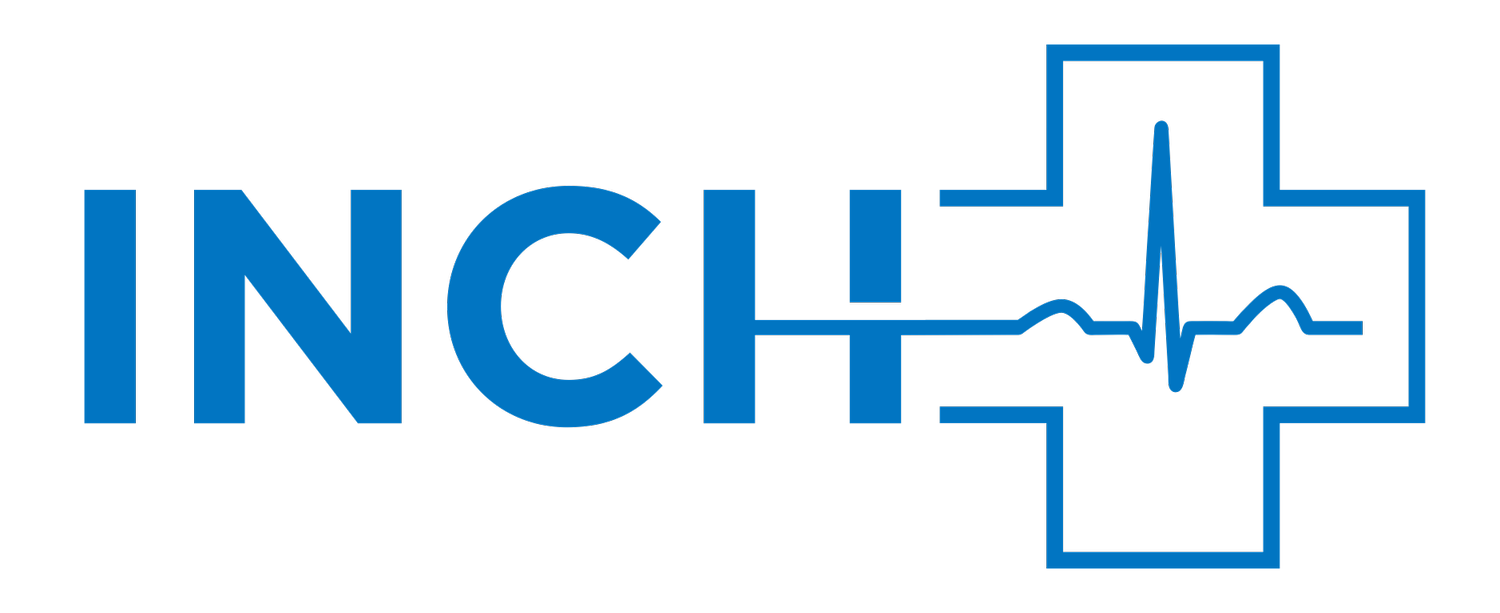Patient Monitoring Roundtable No. 6 | 2025: Wearables and Hospital at Home: New Paths in Patient Monitoring
Save the Date: The next Roundtable will take place on October 15 at the Charité BeST – Topic: “AI & Data Platforms for Intelligent Patient Monitoring”.
Interested? Register here for on-site or online participation!
Under the motto “Wearables and Hospital at Home – how wireless monitoring opens new care spaces”, we met on September 18 for the sixth Patient Monitoring Roundtable (PMRT) of the year at BALTIC, Charité. The focus was on a highly topical question: What role can wearables play in the future to extend care pathways – from the hospital to the home environment?
📣 Remote Patient Monitoring: The Care Model of the Future?
In her compelling presentation, Linea Schmidt (Hasso Plattner Institute) demonstrated how digital technologies can make monitoring more flexible, patient-centered, and practical for everyday life.
Highlights of her keynote:
Wearables provide digital biomarkers: They continuously collect objective daily-life data (e.g., activity in neurology), which correlates strongly with clinical severity and can thus serve as digital biomarkers to track disease progression.
Cost savings through remote monitoring (RPM): Remote Patient Monitoring (RPM) significantly reduces hospital admissions and emergency visits, relieving the healthcare system overall.
Shift from episodic to continuous: Digital monitoring replaces current episodic data collection with seamless, continuous surveillance.
Advantages of HaH: The Hospital at Home (HaH) concept enables hospital-level care at home. International examples show that HaH is safe and cost-effective.
Regulatory hurdles in Germany: Despite international successes and positive pilot projects, HaH is not yet part of standard care in Germany, limiting its widespread adoptions emerged.


🛠️ Workshop Results: Opportunities and Challenges in Clinical Practice
In the subsequent workshops, we focused on the gap between the potential of digital technologies and current challenges in hospitals. The findings can be grouped into three core areas:
-
Wearables enhance patient safety through early detection of critical conditions and improve quality of life (more mobility, fewer cables).
For hospitals, they offer clear economic advantages through earlier discharges and staff relief.
-
Technical chaos: Lack of standards and open interfaces to electronic patient records (ePA) creates a confusing “wearables zoo.”
Process vacuum: Unclear responsibilities for monitoring, insufficient training, and staff resistance (change management) hinder integration.Data overload: Secure storage, visualization, and analysis of large data volumes, as well as regulatory compliance (data protection), remain central challenges
-
Standards and clear structures: Establish an implementation framework with defined roles and responsibilities and create interoperable standards (Open Data).
Trust through evidence: Invest in research (e.g., outcome research, cost-benefit analyses) and develop clinically validated algorithms.
Political direction: Policymakers must support implementation and adapt reimbursement models to sustainably integrate HaH and RPM into standard care.
✅ Conclusion: Change begins in processes
The overarching message is a clear commitment to change: The roundtable showed that the full spectrum of clinical care is ready to rethink monitoring. Success depends less on hardware and more on process design, communication, and workflow integration. Situational awareness must be consciously embedded into daily operations.
A big thank-you to all participants for your open discussions and creative ideas!
Become part of the PMRT online community! 🌐
Become part of the PMRT online community! 🌐
The exchange continues! Our new PMRT Online Community will go public soon - a platform for everyone who wants to actively shape patient monitoring and digital care.
Why take part?
💬 Exchange with experts from clinics, research & industry
📚 Access to exclusive content & events
🚀 Collaborate on concrete solutions for the care of the future
Become part of a committed community for innovation and collaboration in healthcare.
🗓️ Looking Ahead: PMRT in October
We are looking forward to the next roundtable on October 15 at BeST (Berlin Simulation and Training Center), Charité. Keynote speaker: Prof. Dr. Petra Ritter – Topic: “AI & Data Platforms for Intelligent Patient Monitoring.” Join us again as we work together to advance practical monitoring and explore new possibilities through artificial intelligence!
Register now – we look forward to seeing you!
The Roundtable is organized by the INCH Health in partnership with the Institute for Medical Informatics at Charité – Universitätsmedizin Berlin. Special thanks to our sponsors Masimo, Dräger, and Philips, whose support makes the Patient Monitoring Roundtable possible.
